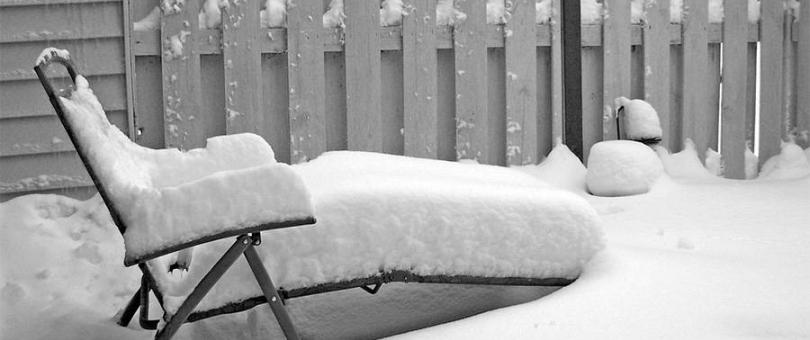There’s so much about lawn care that you may not know. It’s a never-ending subject and looking at all the gardening bloggers doing great with their kitchen gardens and lawns, all you have is immense goals. Even though you may have made some progress, it’s very likely that lawn care in winter is already making you worried.
It happens because of the drastic change in seasons. It’s especially true for areas that receive heavy snowfall in winter. Saving the lawn from the wrath of snow is tough, not impossible. But how would you know what to do if you’re a beginner? Maybe, by reading this blog!
Three essential ingredients of a healthy lawn
Before we start with the winter-specific lawn care tips, we must think of what it takes to have a lush, green lawn. And it’s not much, just three basic things – water, nutrients, and the Sun.
Understand that the right type of soil is important, and so the nutrients present in the ground. pH level of the ground is the biggest factor you need to deal with while maintaining your lawn. All the fertilizers and their use are dependent on what nutrients the soil already has and what it’s missing.
It is important to state that the type of grass makes a lot of difference in the success of a lawn. If you pick the grass that grows well in the kind of soil you have, you will have to do much lesser work and will have much better results. Activities like weed removal and aeration are important. And of course, watering your lawn regularly and adequately makes a lot of difference.
Now you know what the basic lawn care activities are. Let’s talk about the process in winter.
Basic Lawn Care In Winter
1. Always keep your lawn clear of leaves
It may be beguiling just to leave them on the grass. Don’t they get decomposed into useful nutrients for the soil? Yes, they do. But when the leaves cover your grass, they start affecting the grass causing it to decay. The grass blades don’t get enough sunlight, which is already reduced due to the changing weather, and they can’t breathe. Then all the problems like warmth and rodents creep up.
2. Don’t walk on your lawn
Walking on the grass blades damages them. The effect becomes profound during winter due to the harsh weather. But if you live in an area that receives heavy snowfall, listen! It’s very likely that you may have salt on your shoes and de-icing salts are one of the biggest causes of dry patches in a lawn. Use the sidewalks and avoid stepping on the grass. Be extra careful when you have either salt on your feet, or there’s snow on the grass.
3. Fertilize your lawn in early winter
Although it’s an activity that is most recommended for late fall; in case you missed it, do it before the first snow falls. But here’s the catch. Your lawn requires a fertilizer at this time only if it’s a cool season grass, which is most common in the U.S.A
It’s highly likely that you have a cool season grass and hence, fertilization is a critical activity for you.
4. Cut the grass short
During the lawn mowing, cut the grass a bit shorter than you usually do. It’s because long grass provides shelter to mice and insects which aren’t good for your lawn at all. These pests can also move to your house, and it’s not pleasant at all.
While we’re talking about lawn mowing, remember that mulching isn’t good when it’s the end of the fall season. It will create same issues as dead leaves and hence, you should clear the lawn of all such things as much as possible.
5. Focus on timely snow removal
Not only the timings are important, but also the technique. Snow is the biggest damage causing substance for your lawn in winter. If you have taken care of your lawn well in the past months, the grass will be robust enough to bear the effect of a cover of snow on it.
But what makes the situation worse is when you walk on that snow-clad grass. We have already discussed that. What we need to think about right now is how snow removal impacts your lawn.
If you shovel the sidewalks without delays, there will be fewer chances of visitors to your house stepping on the grass. Moreover, the salt is the bigger problem here. It’s damaging, and if you don’t shovel properly, you may sprinkle this salt on the lawn.
So, my only tips for you regarding snow removal are to do it carefully enough not to deposit the pile of snow on the grass.
That’s pretty much everything you need to know about lawn care in winter. I have shared my tips that are winter-specific but if you’re interested in reading more about lawn care, do check this list of blog posts. You’ll find them pretty helpful.


